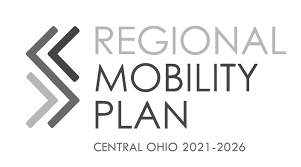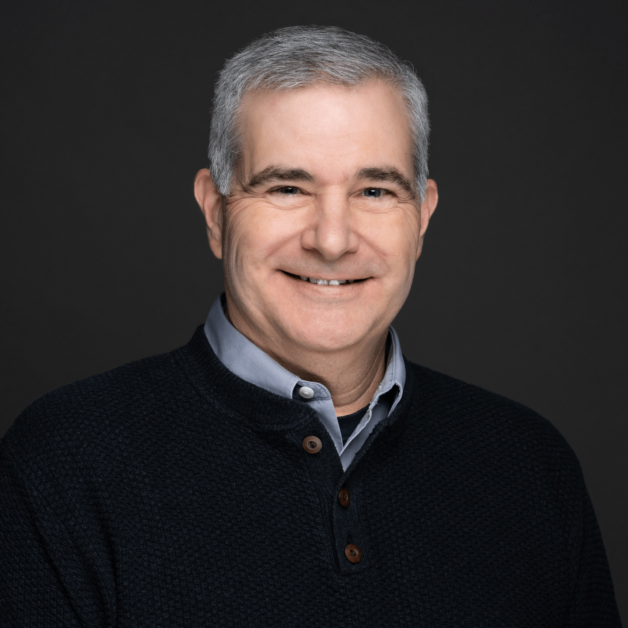In this episode of “Looking Forward Our Way,” hosts Carol Ventresca and Brett Johnson sit down with expert guest Emma Strange, the mobility coordinator for the Mid-Ohio Regional Planning Commission (MORPC).
The podcast explores MORPC’s role in developing a comprehensive regional mobility plan. This plan is for Ohio’s Department of Transportation’s Human Service Transportation Coordination Region 6. It aims to enhance transportation options and coordination for older adults, people with disabilities, new Americans, and low-income populations across nine counties. These counties are Delaware, Fairfield, Fayette, Franklin, Licking, Logan, Madison, Pickaway, and Union.

Emma, with her background in social work and anthropology, brings a unique perspective to the table. She discusses her career journey, which shifted toward transportation issues after she observed their significant impact on vulnerable populations during the pandemic. The conversation also touches on MORPC’s broader objectives. These include providing nonpartisan data analysis, long-range planning, and community resources to support sustainable growth in over 80 local governments and partners.
Regional challenges the mobility plan addresses
Emma explores the challenges faced by residents in the region. These include financial constraints and the life-or-death importance of affordable transportation. Emma advocates for having a mobility manager in every county to engage in individualized transportation planning and community outreach. Moreover, she explains that mobility managers are not just for rural areas, as urban counties also face unmet needs.
The episode also covers MORPC’s collaborative efforts with other regional councils in Ohio. One example is MVRPC. This collaboration helps to combat these challenges through mobility planning. The podcast explores how collaboration can improve and innovate transportation services in different counties. This is currently seen with Licking County’s addition of fixed routes and Delaware County Transit‘s shift to demand-responsive transit.
MORPC’s additional programs
Emma highlights the Emergency Ride Home program, which offers carpoolers emergency transportation, emphasizing the value of planning for transportation alternatives. Ohio Mobility, another resource mentioned by Emma, helps people find accessible transportation options, even for those with temporary mobility needs.
The episode takes a strengths-based approach, one that Emma favors in tackling transit barriers. Rather than viewing the “silver tsunami” as a negative wave of aging populations, she prefers to envision it as a “silver wave” of opportunities. This reframe positions growth, both demographic and infrastructural, as a strength.
Emma underscores the impact public transportation has on personal independence. She shares her experience as an anxious driver who prefers using mass transit for its cost-effectiveness. And the ability to enjoy downtown scenery.
To conclude, the episode highlights additional programs provided by MORPC, such as home energy efficiency, safety services, and air quality monitoring in Ohio. Carol encourages listeners not to self-disqualify from these programs and to engage with MORPC staff who are available to offer assistance.
We’ve talked with MORPC in previous episodes!
Top Takeaways
1. Importance of a Regional Mobility Plan: The episode underscores the significance of developing a comprehensive mobility plan that caters to the needs of older adults, people with disabilities, new Americans, and low-income populations across the 9-county region in Ohio.
2. Role of Mobility Managers: The discussion highlights the pivotal role played by mobility managers, who are instrumental in individualized transportation planning, community outreach, and advocating for access to transit for seniors and people with disabilities.
3. The Power of Coordination: Emma Strange emphasizes the annual updating of the regional mobility plan, which relies on the coordinated efforts of mobility managers, public input, transportation agencies, and local governments to ensure its relevance and effectiveness.
4. Transportation Challenges and Solutions: The podcast explores various challenges faced in transportation planning, including siloed funding and capacity issues, while introducing solutions like the Emergency Ride Home program and Ohio Commute.
5. Emergency and Alternative Transit: Essential information regarding alternative transportation methods and emergency planning is provided, essential for preparing for unexpected situations and supporting an aging population.
Here is more information and links to what we talked about in the episode.
We would love to hear from you.
Give us your feedback, or suggest a topic, by leaving us a voice message.
Email us at hello@lookingforwardourway.com.
Find us on Facebook.
Please review our podcast on Google!
Recorded in Studio C at 511 Studios. A production of Circle270Media Podcast Consultants.
Copyright 2024 Carol Ventresca and Brett Johnson


Leave a Reply